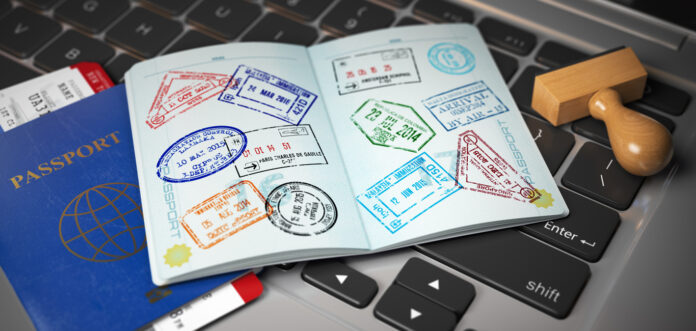Applying for a visa is often one of the most crucial steps when planning to travel abroad—whether it’s for tourism, work, education, or family visits. A visa appointment is the official meeting between the applicant and the embassy or consulate, where your documents are reviewed and sometimes an interview is conducted. For many travelers, this step can feel intimidating, but with the right preparation, it can be a smooth and straightforward process.
This guide will walk you through everything you need to know about visa appointments in 2025—from scheduling the appointment to preparing for the interview and avoiding common mistakes.
1. What is a Visa Appointment?
A visa appointment is an official session at an embassy, consulate, or visa application center where applicants submit documents, provide biometric data, and in some cases attend an interview. It serves two purposes:
-
To verify that your documents are authentic and meet the requirements.
-
To assess whether you are eligible for the type of visa you’re applying for.
Depending on the country, some appointments include an interview, while others focus only on document verification.
2. Why is a Visa Appointment Important?
Booking and attending a visa appointment is not just a formality—it’s a critical step in securing your visa approval. The appointment ensures that:
-
The embassy confirms your identity.
-
Your travel purpose is valid and supported by documentation.
-
You meet the eligibility criteria for the visa category.
Without this step, your application will not move forward.
3. How to Book a Visa Appointment in 2025
The process of booking a visa appointment varies by country, but in most cases it can be done online. Here’s a general step-by-step approach:
Step 1: Determine the Type of Visa
Before booking, confirm what kind of visa you need—tourist, business, student, work, or family reunification. Each type may have different requirements.
Step 2: Complete the Visa Application Form
Most embassies require you to fill out an online application form before booking an appointment. Examples include the DS-160 for the U.S. or the Schengen Visa Application Form for Europe.
Step 3: Pay the Visa Fee
Visa fees must usually be paid before your appointment is confirmed. Keep the receipt as proof.
Step 4: Schedule the Appointment
Visit the embassy or consulate website, create an account if required, and select a convenient date and time. In some cases, third-party visa centers handle bookings.
Step 5: Receive Confirmation
Once booked, you’ll receive a confirmation slip or email. Print it, as it is often required at the entrance of the visa office.
4. Documents Required for a Visa Appointment
Although the exact documents vary by visa type and country, the most commonly required include:
-
Valid passport (with at least 6 months validity)
-
Completed visa application form
-
Visa fee payment receipt
-
Passport-size photographs (as per embassy specifications)
-
Proof of travel (flight booking or itinerary)
-
Proof of accommodation (hotel booking or invitation letter)
-
Financial proof (bank statements, payslips, or sponsorship letter)
-
Travel insurance (required for Schengen visas)
-
Additional documents for specific visas (work contract, admission letter, family documents, etc.)
5. Preparing for the Visa Interview
If your visa appointment includes an interview, preparation is key. Here are some tips:
-
Dress professionally: First impressions matter.
-
Answer honestly and clearly: Avoid giving unnecessary details.
-
Know your travel plans: Be ready to explain why you’re visiting, where you’ll stay, and how long you’ll remain.
-
Show financial stability: Demonstrate that you can afford the trip.
-
Stay calm and confident: Nervousness can make you appear suspicious.
6. Common Mistakes to Avoid During Visa Appointments
Many applicants face rejection due to simple errors. Avoid these mistakes:
-
Submitting incomplete or fake documents.
-
Giving inconsistent answers compared to your application.
-
Arriving late or missing the appointment.
-
Forgetting required originals and photocopies.
-
Not respecting embassy instructions (e.g., photo size, dress code, prohibited items).
7. Tips for a Smooth Visa Appointment in 2025
-
Book early: Visa slots fill up fast, especially during peak travel seasons.
-
Double-check documents: Carry originals and multiple copies.
-
Use official websites: Avoid scams and third-party agents unless authorized.
-
Practice interview questions: Common ones include travel purpose, financial proof, and ties to your home country.
-
Keep updated: Visa rules change often, so always check the embassy’s latest guidelines.
8. What Happens After the Visa Appointment?
After your appointment, the embassy or consulate will process your application. Possible outcomes include:
-
Visa Approved – Your passport will be stamped, or you’ll receive an e-visa.
-
Visa Refused – You’ll receive a written explanation. In some cases, you can appeal or reapply.
-
Administrative Processing – Your case may need further review, which could take additional time.
Processing times vary widely, from a few days to several weeks, depending on the country and visa type.
9. Frequently Asked Questions (FAQs)
Q1. Can I reschedule my visa appointment?
Yes, most embassies allow rescheduling, but slots may be limited. Always try to attend your first booking.
Q2. Do children need a visa appointment?
In many cases, yes. Children may need to appear in person, especially for biometric data.
Q3. How early should I book my visa appointment?
At least 2–3 months before your planned travel date, as slots fill up quickly.
Q4. What should I do if I miss my appointment?
You’ll usually need to book a new one, which may delay your travel plans.
10. Final Thoughts
A visa appointment can feel like a stressful step in your travel journey, but with proper preparation, it can be handled with ease. By booking early, carrying the right documents, and staying confident during the process, you significantly increase your chances of approval.
Whether you’re planning to study abroad, go on a vacation, or start a new career opportunity, taking your visa appointment seriously is the key to turning your travel dreams into reality.

